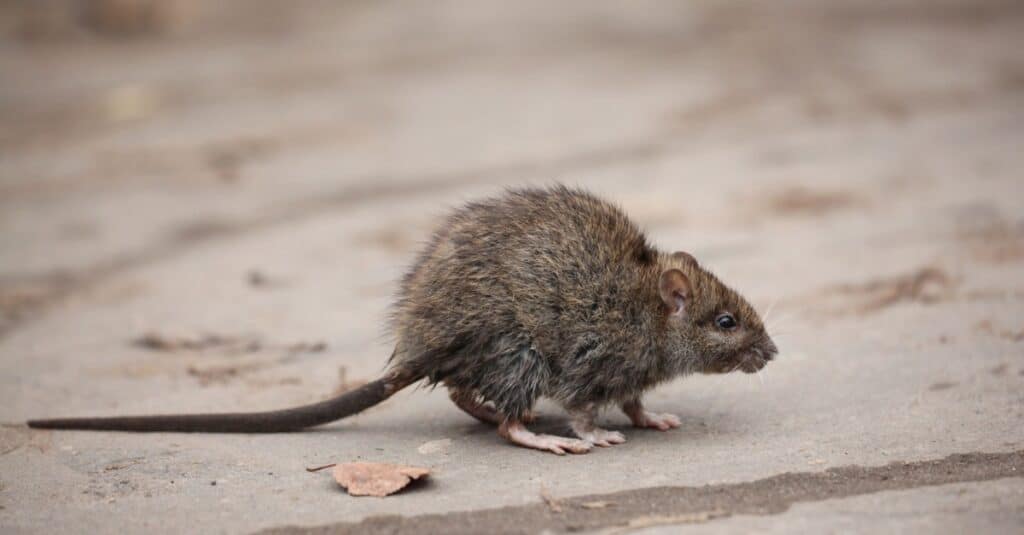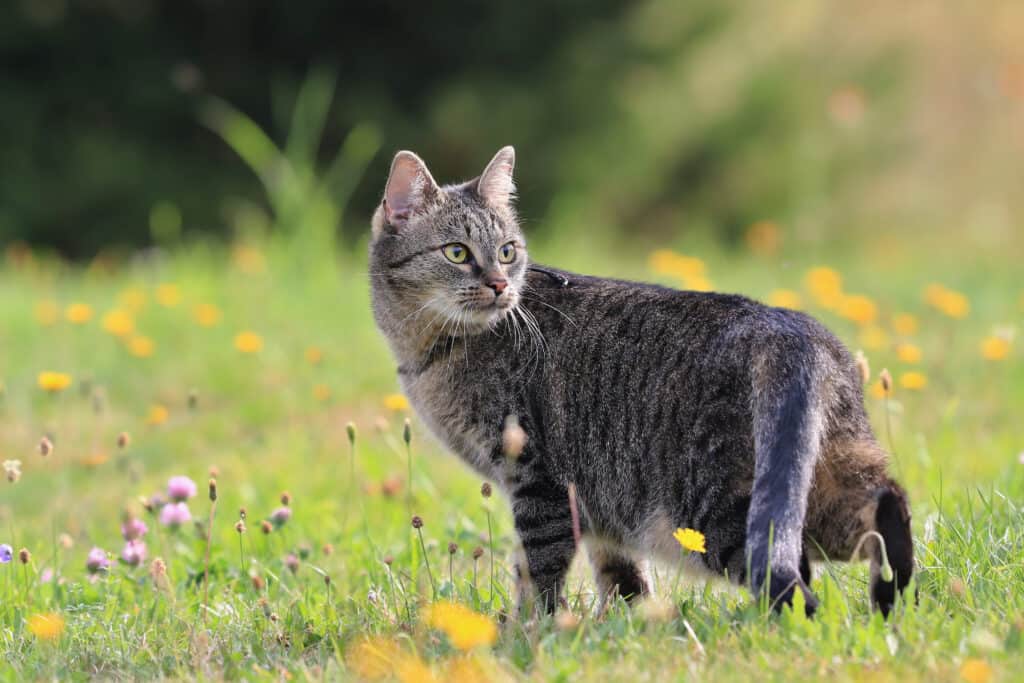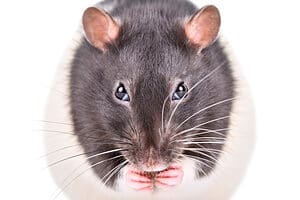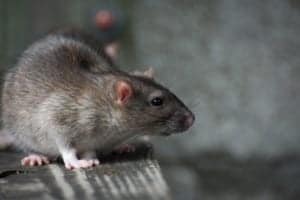Although rats can be friendly and intelligent pets, wild rats are often pests and can create big problems if they enter your home. Getting rid of rats is relatively simple, but keeping rats away is a bit tougher. This is because rats have bad eye-sight but a good sense of smell, which means that they are drawn to certain scents and repelled by others. So, what scent will keep rats away? Let’s find out!

Some scents that keep rats away include clover, capsaicin, garlic, onion, ammonia, peppermint, wintergreen, and spearmint.
©iStock.com/Kichigin
Scents To Keep Rats Away
Knowing which scent to use and where to place it depends on the rat species and the location of its nest. Some rats, like the Norway rats, usually build their nests or burrows on the ground level and under porches. Other rats, like the roof rat, are good at climbing and building their nests in lofty spaces, like roofs and attics. Once you’ve found their nest or determined the species, you will know where to place the scent.
If you have a Norway rat problem, you could place the scent near drainpipe openings, cellar drains, sewer drains, and shower drains outside your home. If you have a roof rat problem, you could place the scent near chimneys, attic windows, loose roofing tiles, and branches close to the roof. These are the scents that you could use to repel rats:
Clover plants
Clover plants have an aromatic white flower and are known to repel rats. You could place the clover flowers in the area where you want to repel the rats, but this requires you to replace them regularly. You could also soak the flowers in water and then spray this water over the chosen area.
Pepper and spicy odors
Because rats have a strong sense of smell, they are repelled by anything unfamiliar or intense as it activates their sense of danger. Capsaicin is a component of spicy foods like chillis and peppers, which act as successful repellants. You can make a chili or pepper spray using four cups of water, two ounces of hot sauce, and one tablespoon of dish soap. You could also sprinkle chili powder or flakes in the area.
Garlic and onions

Onions contain sulfuric compounds, while allicin is the active component in garlic. Both have strong scents to repel rats.
©New Africa/Shutterstock.com
These odors are strong enough to repel rats, raccoons, and deer. Allicin is the active component in garlic, which gives this plant a pungent smell. Onions contain sulfuric compounds, which give them a strong odor. Rats find the allicin and sulfuric compounds repellent. You could place garlic cloves, garlic powder, sliced onions, or onion powder in the area. You could also make a spray with garlic and onion. Bring four cups of water, one onion, and four cloves of garlic to a boil. Once the mixture cools, you can use it as a spray.
Ammonia
Ammonia, commonly used as a cleaning agent, has a strong scent and can be used to repel rats. To repel rats using ammonia, soak towels or cotton balls in the cleaning agent and place them in the area.
Peppermint, wintergreen, and spearmint
These flavors are typically used in chewing gum to keep our breath fresh, but you can also use them to repulse rats. For example, you could use peppermint, wintergreen, or spearmint oil to repel rats. These oils also work against mice, insects, raccoons, and spiders.
Cloves
Cloves have a clean and spicy aroma, which rats hate. You could use whole cloves wrapped in cloth and place them in the rats’ living area. You could also soak rags or cotton balls in clove oil and put them close to rat nests.
Eucalyptus
Eucalyptus has a strong smell, so it is helpful to use Eucalyptus oil to deter rats. Create a mixture in a spray bottle using 10 to 15 drops of eucalyptus oil and water and spray this along walls, in ceilings, around dust bins, and other places you suspect attract rat activity.
Cat fur

Trick rats into thinking a predator is near by strategically placing cat fur to deter them.
©Monika Surzin/Shutterstock.com
As cats are the rat’s predators, their smell and hair will deter them. If you have a cat or any other furry pet, the fur they shed will discourage rats from moving into your living space. If you don’t have a cat, you could visit your nearest pet store or ask a friend to keep some cat fur to use as a rat deterrent.
White vinegar
Rats do not like the smell of white vinegar and hate the taste even more. White wine vinegar will trigger the rat’s fear senses, and they will avoid the area. You could soak cotton balls in white vinegar or make a spray mixture by diluting the white vinegar in water.
Citronella
Citronella has a clean and fresh smell and is unsurprisingly a deterrent for rats. Rats hate this smell as it is strong and because it disguises the smell of food and predators in the area. Make a 10% citronella and 90% water mixture. Spray this in the rat’s space or soak cotton balls in the mix and place them where the rats live.
Other Ways To Keep Rats Away
The first thing to do if you think you have rats is to do a home inspection. First, you should examine the exterior of your home and look for entry points. Entry points can be in drains, gaps in doors, vents, and cracks. You should close any gaps you suspect may be entry points. Wire wool, concrete, or caulk are suitable materials to secure openings.
To keep rats out, you should also keep your home clean. Rats look for spaces where they can hide that are close to garbage. Therefore, rats will find this appealing if your home is cluttered or has trash around. If you feel you have rats and cannot get rid of them or keep them away, we suggest calling an exterminator. Exterminators will help you find the entrance points and their nests and help remove them.
The photo featured at the top of this post is © torook/Shutterstock.com
Thank you for reading! Have some feedback for us? Contact the AZ Animals editorial team.







